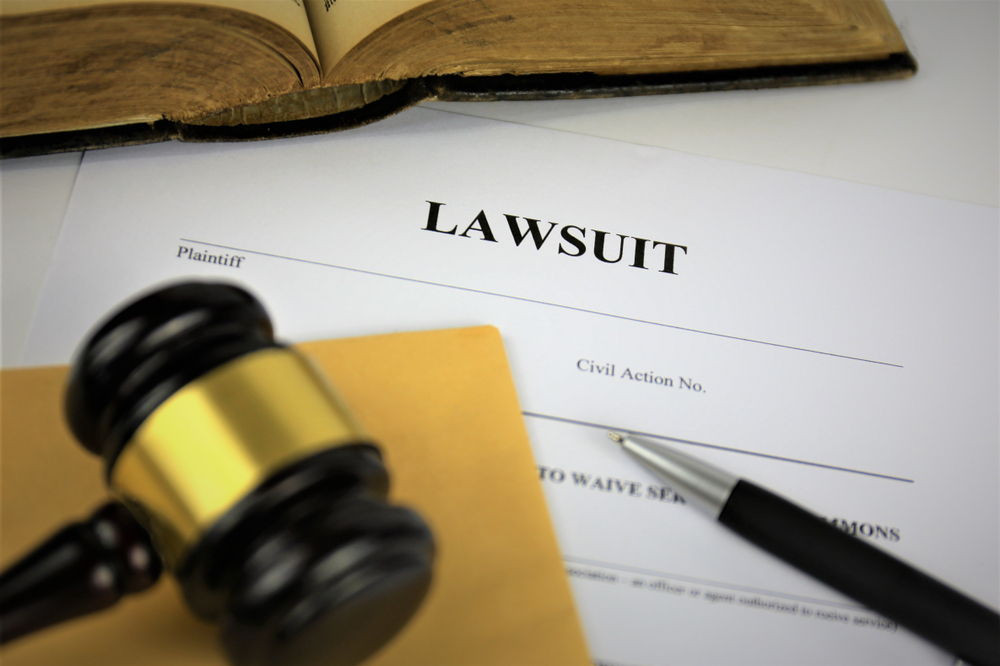For some pregnant women, morning sickness is a mild inconvenience. For others, however, it can be downright debilitating. Symptoms include nausea and vomiting, and despite the condition’s colloquial name, they can last all day long.
Since it’s virtually impossible to get anything done—or keep anything down—if you’re constantly queasy, it’s not uncommon for pregnant women to seek relief. Popular morning sickness remedies include vitamin B-6 supplements, ginger, and anti-nausea drugs containing doxylamine and pyridoxine. While these treatments are safe for developing fetuses, there was another common modality that now appears to increase the risk of birth defects.
One of the most-prescribed pharmaceuticals for morning sickness, Zofran was never actually approved by the U.S. Food and Drug Administration for pregnant women. In 1991, the FDA approved this ondansetron formula for the treatment of nausea and vomiting in cancer patients. Its efficacy led some physicians to prescribe the medication to pregnant women who were suffering from severe morning sickness.
This, in turn, led the company that marketed the drug, GlaxoSmithKline (GSK), to advertise it as a cure for morning sickness. Despite the fact that promoting a medication for off-label use is illegal, this led to even more prescriptions.
Unfortunately, it appears there’s a reason why the FDA has not approved Zofran for women who are pregnant or trying to become pregnant. The drug poses a major risk to developing fetuses.
If you or someone you love took Zofran during pregnancy, your family may be entitled to compensation. To see if you have grounds for a claim against GSK for damages stemming from preventable birth defects, fill out our form to get in touch with a local lawyer who can help.
- What Is Zofran?
- History of Zofran & Related Lawsuits
- What Should I Do If I Have Been Affected by Zofran?
- How Do I Know If I Qualify to Be Part of a Zofran Lawsuit?
- How Does a Zofran Lawsuit Work?
- Do I Need Legal Counsel to Join a Zofran Lawsuit?
- How Long Does It Take to Resolve a Zofran Lawsuit?
- What Is the Statute of Limitations for a Zofran Lawsuit?
- How Much Can You Recover From a Zofran Lawsuit?
- How Long Does It Take to Receive the Funds After Resolving a Lawsuit?
- Final Thoughts
What Is Zofran?
Available in tablets, oral disintegrating tablets, and an oral solution, Zofran is the brand name for a medication that contains an ondansetron base and a number of inactive ingredients, including aspartame, mannitol, methylparaben sodium, and propylparaben sodium.
Developed in London in the mid-1980s by GlaxoSmithKline, Zofran was granted patent protection in the United States in 1987 and approved by the FDA in 1991. By 2006 (the final year of its patent), it was the 20th highest-selling brand-name drug in the country. The FDA approved generic versions in 2006.
A highly effective antiemetic agent, ondansetron is primarily prescribed to treat severe nausea and vomiting resulting from anesthesia, chemotherapy, and radiation. It’s also used to manage cyclic vomiting syndrome.
Side Effects of Zofran
Like all drugs, Zofran has a number of potential side effects. Some patients who take it may experience:
- Headaches
- Dizziness
- Drowsiness
- Constipation
More serious but rare side effects include chest pain, irregular heartbeat, and fainting. Zofran can also increase serotonin levels. This can result in serotonin syndrome, especially among those who are taking other drugs that increase serotonin in addition to ondansetron.
Unfortunately, GSK was not upfront about these side effects. What’s more, they proceeded to promote it as a treatment for morning sickness, even though court documents indicate that they knew as early as 1992 that Zofran posed an “unreasonable risk of harm” to developing fetuses.
In 1999, the FDA issued GSK a warning letter for improperly marketing Zofran and for failing to warn physicians and patients about the adverse side effects. It wasn’t until more than a decade later, however, that GSK finally began testing some of the more dangerous risks of Zofran, like those regarding cardiac issues.
In July 2012, the FDA released a report based on GSK’s 2011 study showing that dosages larger than 32mg appear to cause fatal heart rhythms. That same month, GSK settled a lawsuit over allegations of falsely promoting Zofran for off-label use by pregnant women with severe morning sickness.
The FDA only approved Zofran for cancer patients and surgery patients who were suffering from nausea as a side effect of treatment. Once GSK realized ondansetron could also be used to combat morning sickness, though, they started illegally marketing the drug to obstetricians and expectant mothers.
In 2012, GSK faced federal charges for fraud and the illegal marketing of a number of its medications, including Paxil, Wellbutrin, Avandia, and Zofran. The pharmaceutical giant pleaded guilty to two counts of introducing misbranded drugs into interstate commerce and one count of failing to disclose safety data. They ended up paying out $3 billion in total to settle all criminal allegations and related civil claims at the time—the largest health fraud settlement in U.S. history.
Regarding Zofran in particular, a woman from Minnesota filed the first birth defect-related suit in February of 2015. The plaintiff was prescribed Zofran fairly early in the first trimester of both her pregnancies to control morning sickness. Her two daughters were born with serious heart abnormalities. The daughter she had in 2004 had to undergo surgery in 2011 to address a hole in her heart. The daughter she had in 2006 was also born with a congenital heart defect.
More lawsuits against GSK quickly followed. Most plaintiffs alleged that not only did GSK unlawfully market the drug to pregnant women, but they knew it posed serious risks to developing fetuses. Some suits even claimed GSK paid doctors to prescribe it. Considering the number of ondansetron prescriptions to pregnant patients more than doubled from 50,000 per month in 2008 to 110,000 per month in 2013, this allegation is not unfounded.
If you or someone you love took Zofran while pregnant and the baby was born with birth defects, fill out our form to connect with a personal injury attorney. An experienced lawyer will evaluate the circumstances to determine if your family has grounds for a suit against GSK. While filing a claim won’t undo the trauma you’ve suffered, it could yield the funds needed to take care of your family in the coming years.
Studies and Lawsuits Continue Linking Zofran to Birth Defects
Zofran can affect developing fetuses because it’s able to pass through the placenta. Birth defects that have been linked to Zofran through scientific studies or lawsuits include:
- Cleft lip and palate
- Heart defects
- Gastrointestinal issues
- Hearing problems
- Skull deformities
- Club foot
- Mental disorders
Tomisha LeClair of Massachusetts filed the second lawsuit against Zofran just four days after the Minnesota woman took action. Her daughter was born with several birth defects including webbed toes, sensitivity to light, an inguinal hernia, low-set ears, heart problems, hearing problems, and facial dysmorphia.
A few months later, in July of 2015, the Kutzer family sued GSK for incentivizing doctors to prescribe Zofran and for making false representations about the safety of the drug. Their son was born with multiple birth defects as well, including an incomplete vas deferens and a missing kidney.
In August of 2016, another couple sued GSK because their son was born with a cleft palate and lip. The mother had started taking Zofran early in the first trimester of her pregnancy.
The primary issue in all these cases wasn’t that Zofran caused birth defects. There are thousands of medications that have the potential to harm developing fetuses. The issue is that GSK knew of the formula’s potential to cause harm yet proceeded to market the drug aggressively to OB/GYNs anyway. Such actions demonstrate a high degree of immorality backed by fraudulent intentions, implying a criminal indifference to the health and well-being of others.
What Should I Do If I Have Been Affected by Zofran?
If you think Zofran is to blame for your child’s birth defects, you may have grounds for a suit against GlaxoSmithKline. The easiest way to determine how you should proceed is by consulting a personal injury attorney in your area. You can have one reach out to you by filling out our form.
A resourceful lawyer will investigate the circumstances surrounding your child’s condition to see if taking legal action could be worthwhile. If it appears that Zofran may have contributed to the complications your son or daughter suffered, your attorney will help you pursue compensation for all associated damages from GSK.
Since navigating legal proceedings can be challenging, it’s only natural to put off calling a lawyer. As long as you turn to a reputable firm, though, you won’t have to worry about the logistics. Your legal team will do all the heavy lifting, so you can focus on more important things, like taking care of your family.
It’s wise to call an attorney as soon as possible, though, since critical evidence may be time-sensitive. What’s more, there are strict filing deadlines for almost all personal injury plaintiffs
How Do I Know If I Qualify to Be Part of a Zofran Lawsuit?
If you can answer yes to all the following questions, there’s a good chance you’re entitled to compensation from GSK and/or your OB/GYN:
- Were you prescribed Zofran at some point during your pregnancy?
- Did you take Zofran as instructed by your doctor at some point during your pregnancy?
- Was your child born with any birth defects that were not attributed to genetic disorders, drug or alcohol consumption during pregnancy, untreated infections, or a maternal age of 35 or older?
- Did your family incur actual damages as a result of your child’s birth defects?
How Does a Zofran Lawsuit Work?
Like most personal injury lawsuits, an action against GSK over Zofran will likely begin with a demand letter. A product liability attorney can help you draft this letter, which should state why you’re entitled to damages and how much compensation you’re seeking.
A claimant’s initial demand is rarely accepted; however, as long as the letter is accompanied by strong evidence of liability, it will likely prompt negotiations. Since most personal injury cases are settled, there’s a good chance your claim will not proceed beyond this stage.
If GSK denies liability or refuses to offer a fair payout, though, you may have no choice but to file a lawsuit. Your suit will start with a formal complaint, which GSK will have a limited amount of time to address. Should they still prove uncooperative, the discovery phase will begin.
During this phase—which may last anywhere from three months to a year—both parties conduct their own investigations. They might depose witnesses, consult experts, and file subpoenas for relevant records.
Depending on what kind of evidence comes to light during discovery, the defendant may be prompted to negotiate. As such, mediation generally follows.
During mediation, a neutral third-party will attempt to help the plaintiff and defendant arrive at a satisfactory settlement. If mediation proves unsuccessful, however, the case will go to court. During the trial, both parties will present the evidence they obtained during the discovery phase. A judge or jury will evaluate all of it before issuing a verdict.
Do I Need Legal Counsel to Join a Zofran Lawsuit?
Personal injury claimants have every right to represent themselves. It’s generally advisable, however, to seek legal counsel before commencing a Zofran lawsuit.
Should you go up against a major pharmaceutical company like GlaxoSmithKline on your own, you’ll undoubtedly face a lot of hurdles. After all, they have the resources to challenge every claim that comes their way. If you want to level the playing field, it’s best to hire an attorney who’s well-versed in product liability and medical malpractice.
In addition to protecting your rights while advocating for your best interests at every stage of the proceedings, your legal team will:
- Gather the evidence needed to prove liability
- Preserve all relevant documentation that might contribute to your claim
- Track recoverable damages
- Handle all correspondence with the opposing party
- Negotiate for a fair payout
- Resolve any medical liens with your family’s health insurance carrier
- Keep you from making critical mistakes, like posting about the pending case on social media
- Prepare your case for trial if negotiations proof unsuccessful
- Help you file an appeal if the proceedings and resulting verdict warrant one
How Long Does It Take to Resolve a Zofran Lawsuit?
Raising a child with birth defects can drain almost any family’s financial resources. As such, those who took Zofran while pregnant are usually motivated to resolve their lawsuit as quickly as possible.
Unfortunately, legal proceedings are inherently complicated, and it’s common for disputes to arise along the way. As such, claims are rarely resolved as quickly as the plaintiffs would’ve hoped.
Generally speaking, it could take anywhere from 12 to 24 months to resolve your case. Whereas some personal injury claims are fairly straightforward and may be resolved in as little as six or eight weeks, those involving birth defects and product liability are especially complex. And if your case ends up going to court, you can be sure it will take even longer.
Factors that might influence to duration of your family’s Zofran lawsuit include:
- The severity of your child’s birth defects
- The extent of the damages your family incurred as a result of your child’s condition
- The overall complexity of your case
- Whether you intend to name the OB/GYN in the suit, too
- Whether you’ll be seeking a punitive award in addition to the standard compensatory damages
- The strength of the evidence your legal team presents
What Is the Statute of Limitations for a Zofran Lawsuit?
Every state imposes strict filing deadlines for personal injury suits. While there are always exceptions, most plaintiffs are prohibited from taking action after the applicable deadline has passed. If you tried to take your Zofran suit to court after the statute of limitations ran out, the judge would likely dismiss your case.
These deadlines usually range from two to six years. That doesn’t necessarily mean, however, that you cannot take action if your child was born more than six years ago.
When it comes to statutes of limitations, the courts recognize the discovery rule, which essentially states that the “clock” doesn’t start ticking until the date on which the plaintiff realized—or should have realized through reasonable diligence—that he or she had grounds for a claim.
It did not become widely known that Zofran had the potential to cause severe birth defects until 2011. Although researchers in Hong Kong published a study in 2006 confirming the fact that Zofran could enter the human placenta at high concentrations, they conceded that further investigation was warranted. What’s more, GSK appeared to ignore their findings and continued marketing the medication to pregnant women.
In 2011, another Zofran study was published. This one confirmed an association between Zofran and an increased risk of malformations. Researchers went so far as to state children exposed to Zofran are more than twice as likely to be born with cleft palate.
Because of this convoluted timeline, the filing deadline for many families has some leeway. To see if you might have grounds for a suit despite the years that have passed since taking Zofran, get in touch with a local personal injury attorney by filling out our form.
How Much Can You Recover From a Zofran Lawsuit?
A successful Zofran lawsuit will yield compensation for all kinds of damages. Every state allows for the recovery of both monetary and non-monetary losses, which typically include:
- Medical expenses
- Home care
- Home and vehicle modifications
- Pain and suffering
- Loss of enjoyment in life
- Emotional distress
Naturally, the total compensation you actually recover, assuming your case is successful, will depend on a variety of factors. Such factors include the severity of your child’s birth defects, any relevant damage caps imposed by the state, the value of any health care liens, and the fees your legal team charges.
How Long Does It Take to Receive the Funds After Resolving a Lawsuit?
If your case is resolved in your favor, it will probably be at least a few weeks before you actually receive the funds to which you’re entitled. In these kinds of scenarios, the plaintiff’s legal team usually accepts the compensation on his or her behalf.
Your personal injury attorney will then ensure the funds are doled out as necessary, so you don’t inadvertently spend money that’s not actually yours. For example, your lawyer will resolve any health care liens that your insurance carrier applied and then take off the firm’s legal fees. You will then receive a check for the total that remains, which is yours to spend on your child’s care.
In most cases, personal injury payouts are not taxable. If you happened to deduct any of your child’s medical expenses, however, you’ll have to pay taxes on the portion of the payout that corresponds to said deductions. Your lawyer can refer you to a seasoned CPA who will be more than happy to assist with your income tax preparation for the year in which your case is resolved.
Final Thoughts
Even relatively minor birth defects can cause major challenges for both the affected child and his or her family. If your child has congenital abnormalities and you think Zofran is to blame, fill out our form to get in touch with a compassionate personal injury attorney. Taking legal action won’t restore your child’s health and well-being, but it could yield the funds needed to help him or her lead a long and happy life.



